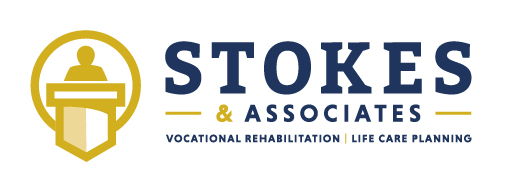Defining Work History Through Deposition Questions
When conducting a vocational rehabilitation assessment of an injured worker, it is important to first construct a pre-injury vocational profile. The pre-injury profile includes the client’s education, work history, vocational interests, and likely professional trajectory. In instances where an interview with the client is not possible, we often rely on information collected during depositions to construct both the pre-injury and post-injury vocational profiles to determine residual earning capacity. Below are some basic helpful questions to ask the plaintiff during a deposition:
What was your job title and who employed you? This is important for us to know in cross-referencing Department of Labor classifications of jobs to conduct wage research. Obtaining the full LEGAL name of the employer is also helpful if we need to request personnel or employment records.
What were your job duties? Just because we have a job title, does not mean we necessarily know what the daily job duties were. Additionally, the same job can be known by a variety of job titles. It is important to ask about key issues like: “How much did you have to lift/push/pull daily? Was help available when you had to lift heavy objects? What tools did you use? Did you operate machinery? To whom did you report? Did you need to use a computer? Did you use specialized software?”
What were your dates of employment? It is important to know how long an individual generally stayed at jobs to gauge likely performance, interest and plans to continue working in a desired field. Red flags arise if there are gaps in employment, or if some individual jumps from job to job.
How were you compensated? Earnings history is used to demonstrate likely earnings trends and helps determine pre-injury earning capacity. For example, if the individual earned less than the state statistical average for their job, they may have been underemployed. If they demonstrated earnings in line with statistical averages, then a reasonable assumption can be made that they could follow the documented earnings trajectories demonstrated by higher percentile wages. For business owners, it is important to ask about expenses they ran through their business, and the costs they could expect to incur should they be forced to hire someone to replace the services they can no longer perform.
What was your reason for leaving a job? This helps us understand how the individual makes decisions about employment and helps us to know about potential barriers to employment. For example, leaving a job because of continued conflict with a supervisor is very different from leaving a job to accept an offer of higher pay from a competitor.
We offer complimentary consultations concerning "hypothetical matters."
To learn more about important issues associated with determining pre and post-injury earning capacity or to strategize with one of our vocational or life care plan experts at Stokes & Associates, Inc. please call David Barrett at 504-454-5009, visit our website, www.stokes-associates.com or email dbarrett@stokes-associates.com.
Larry S. Stokes, Ph.D.
Aaron Wolfson, Ph.D.
Lacy Sapp, MHS, CRC, LPC, LRC, CLCP
Todd Capielano, M.Ed., LRC, CRC, LPC, CLCP
